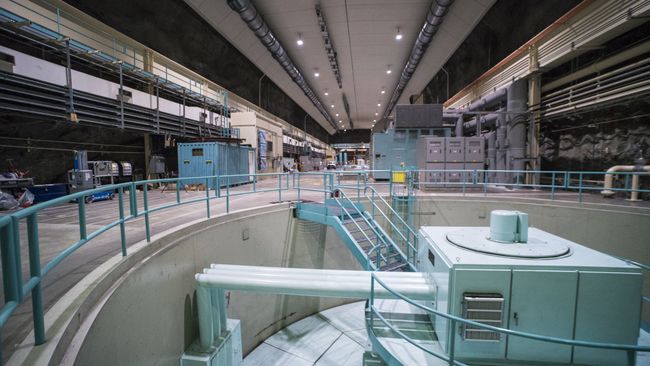
Duke Energy recently completed upgrades to the four units at its 1,680 MW Bad Creek pumped storage plant in Salem, South Carolina, adding 320 MW of carbon-free energy to its system.
Duke Energy said its goal is to ensure energy reliability for its customers as strong economic development successes and population growth power the Carolinas’ energy needs.
The Bad Creek pumped storage facility is located in Salem, S.C. It came online in 1991 and is the largest “battery” on the company’s system, according to a release. The units were upgraded in phases, adding 80 MW of capacity to each new pump turbine. Unit 2 was completed in 2020, Unit 1 was completed in 2021, Unit 3 was completed in 2023 and Unit 4 was completed in April 2024.
“This investment in Bad Creek demonstrates our commitment to improving reliability across the Carolinas. Pumped storage technology gives us operational flexibility, allowing us to store energy and then deploy that energy when customer demand is highest,” said Preston Gillespie, executive vice president and chief generation officer and enterprise operational excellence. “Expanding our energy storage capabilities is just one of the many steps we are taking in the next phase of our energy transition.”
Duke Energy is working to extend the Federal Energy Regulatory Commission operating license of the Bad Creek pumped hydro storage facility, which is set to expire in 2027.
In addition to this upgrade project, Duke Energy is evaluating the potential to add a second powerhouse at Bad Creek that would further help Duke Energy add capacity as well as address increasing system variability, from the growth of solar and customer usage, in a reliable and affordable way. If pursued, the second powerhouse could be in service as early as 2034.
“From population growth to the expansion of manufacturing and other major economic development wins, the Carolinas are booming,” said Mike Callahan, Duke Energy’s South Carolina president. “We must have a diverse energy mix to account for this growth on the coldest winter nights and the warmest summer days. We continue to look at solutions like expanding Bad Creek to make sure the power is there when customers need it, and it is as affordable as possible – providing certainty as they go about their daily lives.”
Expanding operations at Bad Creek also provides significant economic benefits of $7.3 billion to South Carolina, as the state benefits from construction and general infrastructure activity, by 2033.
Duke Energy Carolinas, a subsidiary of Duke Energy, owns 20,700 MW of energy capacity, supplying electricity to 2.9 million residential, commercial, and industrial customers across a 24,000-square-mile service area in North Carolina and South Carolina. Duke Energy is headquartered in Charlotte, N.C. The company’s electric utilities serve 8.4 million customers in North Carolina, South Carolina, Florida, Indiana, Ohio, and Kentucky, and collectively own 54,800 MW of energy capacity.
Duke Energy is executing an ambitious clean energy transition, keeping reliability, affordability, and accessibility at the forefront as the company works toward net-zero methane emissions from its natural gas business by 2030 and net-zero carbon emissions from electricity generation by 2050. The company is investing in major electric grid upgrades and cleaner generation, including expanded energy storage, renewables, natural gas, and nuclear.







